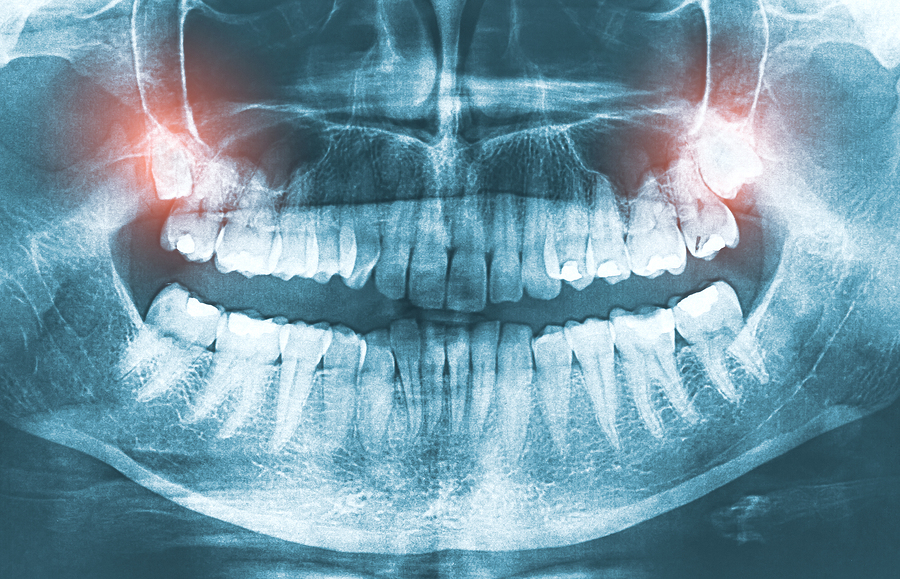Wisdom teeth can be unpredictable. Not everybody has to deal with them, and they can be more troublesome to some people than others. If your dentist has recommended that you have your wisdom teeth removed, you understandably may have concerns. Below straightforward information about wisdom teeth, extraction, and caring for yourself before, during, and after the procedure.
What Are Wisdom Teeth?
Wisdom teeth are third molars that may erupt many years after an individual’s adult teeth have come in, typically after the age of 18. It should be noted, however, that not everyone has this set of third molars and that wisdom teeth do not always erupt even when they are present.
Why Are Wisdom Teeth a Problem?
Wisdom teeth are often a problem because most people’s jaws are not large enough to accommodate these additional molars. This means that the molars may come in sideways, or, if there isn’t enough room for them to erupt at all, they may become impacted. Wisdom teeth may crowd other molars, causing bite problems and making oral hygiene more difficult, leading to cavities and gum disease.
What are Some Wisdom Teeth Symptoms to be Aware Of?
While the experience of wisdom teeth “coming in” is a minor irritation for most people, symptoms can become more than a nuisance and may require professional attention. These symptoms include jaw pain, bleeding gums, cysts, infection, bad breath, swelling, and even difficulty opening your jaw. If you do experience any of these symptoms, it’s important to contact your dentist right away.
Do I Have to Have My Wisdom Teeth Removed?
Not everybody needs to have their wisdom teeth removed. However, dentists generally recommend removing these molars as early as possible, as it is easier to do so when the root system is less established. If you are receiving regular dental checkups, your dentist can let you know whether extraction is in your best interests.
How Do I Prepare?
When scheduling your appointment, be sure to pay attention to any pre-extraction instructions given to you by the dental office staff. For example, you may be asked to not eat or drink anything for a period of time before the procedure if you will be undergoing sedation or general anesthesia.
You’ll need time to recover from the procedure, at least a day or two, so you’ll want to schedule time off from work and arrange for childcare. Stock up on soft foods that you can consume during the healing period. In addition, you may want to prepare an area of your home where you can go to rest immediately after the procedure.
Talk to your dentist about your wisdom teeth pain relief options. At minimum, local anesthesia in the form of injections at the site of your tooth will be used. In addition, you may be offered sedation or a general anesthetic if you are nervous about the procedure or you are having several molars removed at once. If you receive sedation or general anesthesia, you will need to arrange to have somebody accompany you to your appointment, as it is not safe for you to drive.
Finally, if you have any medical conditions, talk to your dentist. This is particularly true if you take other medications or have a heart condition. Your dentist may want to coordinate with your physician to ensure that sedation or anesthesia does not conflict with any drugs that you are currently taking. In addition, you may need to take an antibiotic before the extraction.
What Should I Expect at my Extraction Appointment?
In most cases, extraction is performed on an outpatient basis. This means that the procedure will take place at your dentist office and you will go home soon after the removal of your tooth or teeth. If you have health problems or your teeth are severely impacted, you may have to be admitted to the hospital for the extraction.
On the day of your procedure, you may need to take provided sedation medication before you go to your dentist office. After your arrival, you may also be able to listen to music, audiobooks, or podcasts during the procedure.
Afterwards, the dental office staff will monitor your condition and let you know when it is safe to go home. You will be provided with aftercare instructions along with a list of symptoms that may indicate complications. If you experience any of these symptoms, you should contact your dentist right away.
What is the Average Wisdom Teeth Removal Recovery Time?
For many people, the first 24 hours after wisdom teeth removal are the most difficult. You may feel groggy from the sedation, and you may experience some pain and swelling. Swelling often peaks at around 24 hours post-extraction.
Be sure to follow your dentist’s instructions regarding consuming foods and beverages. In addition, it is important to protect the socket where your wisdom tooth was. Do not brush your teeth or spit during this time, as this could dislodge the blood clot that is forming in the socket. If this happens, you can develop a painful condition called dry socket that requires professional attention.
Many people can return to work after a day or so, but it is important to take it easy and not do anything that could dislodge the blood clot. Discomfort may last up to two weeks, though it should taper off significantly after the first few days of recovery.
Many people have concerns and anxiety around wisdom teeth removal. The dentists at Gentle Dental are experienced in modern techniques that can help keep pain and recovery time to a minimum. If you are concerned about your wisdom teeth, or those of your teenage or college-age child, contact our office today. We offer convenient evening and weekend appointments and accept most insurance, credit cards, dental plans, and offer financing options.



 Previous Article
Previous Article